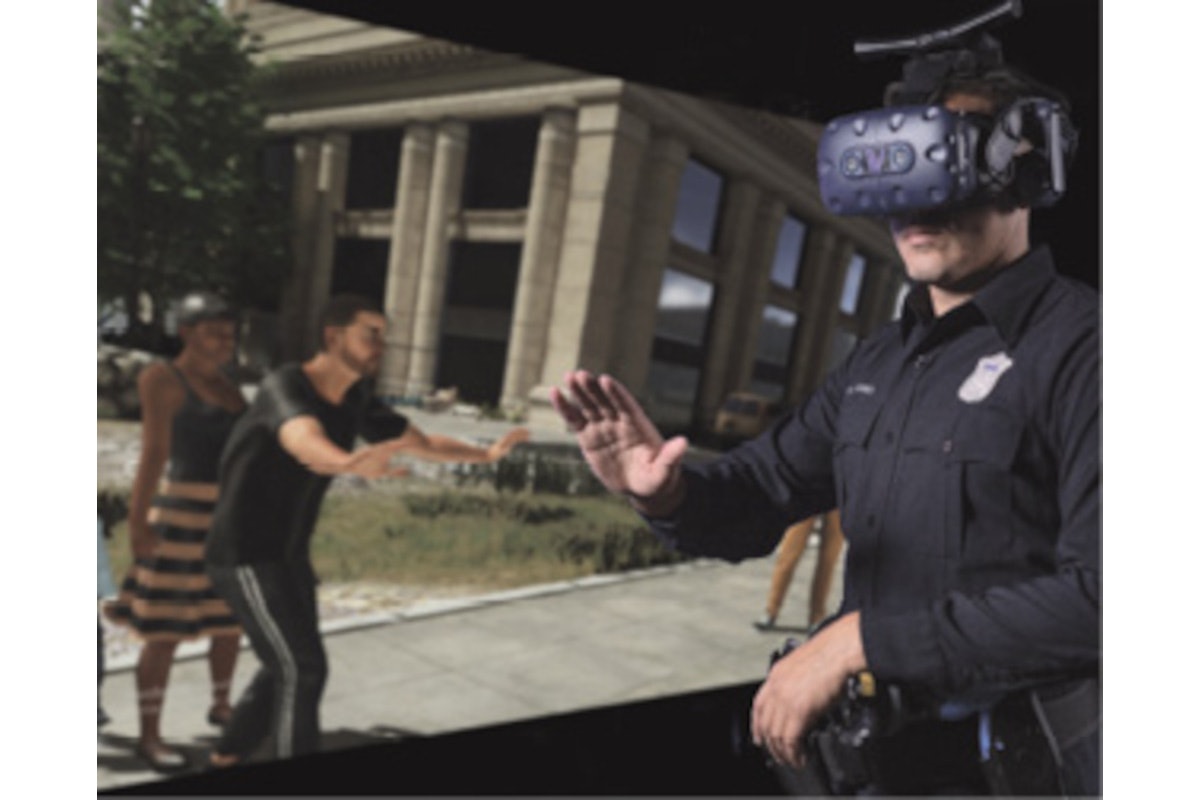
VR Transforming Criminal Justice Training: Immersive Simulation Advances
In the dynamic world of criminal justice training, a groundbreaking evolution is underway, ushered in by the immersive capabilities of Virtual Reality (VR). This paradigm shift goes beyond traditional training methods, offering a transformative approach that engages trainees on a new level and prepares them for real-world scenarios.
Immersive Simulations: Beyond Conventional Training
Virtual Reality introduces a novel dimension to criminal justice training through immersive simulations. Trainees are no longer confined to traditional classrooms; they step into virtual crime scenes, correctional facilities, and courtroom scenarios. This hands-on experience allows for practical application of theoretical knowledge, enhancing the effectiveness of training.
Scenario-Based Learning: Realism in a Virtual Realm
VR in criminal justice training employs scenario-based learning, injecting a level of realism that was previously challenging to achieve. Trainees navigate lifelike situations, making critical decisions and experiencing the consequences of their actions in a controlled virtual environment. This approach bridges the gap between theory and real-world application.
Use of Force Training: Enhancing Decision-Making Skills
For law enforcement personnel, making split-second decisions is a critical aspect of the job. VR provides a platform for use-of-force training where trainees can simulate encounters, assess potential threats, and make decisions under pressure. This realistic training contributes to honing decision-making skills crucial in law enforcement.
Crisis Intervention Training: Virtual De-escalation Scenarios
In the realm of crisis intervention, VR enables the creation of virtual scenarios involving individuals in distress. Trainees learn de-escalation techniques and practice handling crisis situations in a controlled environment. This immersive training enhances empathy and equips law enforcement with the skills needed for effective crisis intervention.
Courtroom Simulations: Preparing for Legal Proceedings
For those in legal professions, VR offers courtroom simulations that mimic real legal proceedings. Attorneys and legal professionals can practice courtroom etiquette, argumentation, and witness examination in a virtual setting. This prepares them for the complexities of the legal system in a hands-on and risk-free environment.
Forensic Training: Investigating Virtual Crime Scenes
In the field of forensics, VR in criminal justice training facilitates realistic crime scene investigations. Trainees can virtually explore crime scenes, collect evidence, and analyze forensic clues. This immersive approach not only enhances forensic skills but also fosters a deeper understanding of the intricate process of criminal investigations.
Team Coordination Exercises: Collaborative Training Scenarios
Effective teamwork is crucial in the criminal justice system. VR enables collaborative training scenarios where multiple trainees, whether police officers or legal professionals, can interact in the same virtual environment. This fosters communication, coordination, and the development of cohesive teamwork skills.
Adaptive Learning Paths: Tailoring Training to Individual Needs
Each trainee has unique strengths and areas for improvement. VR allows for adaptive learning paths, tailoring training programs to individual needs. Trainees can focus on specific areas, receive personalized feedback, and progress at their own pace. This personalized approach optimizes the learning experience for each participant.
Explore VR in Criminal Justice Training: A New Era of Preparedness
To delve deeper into the transformative world of VR in criminal justice training, visit VR in criminal justice training. It’s not just about virtual reality; it’s about ushering in a new era of preparedness, where immersive simulations redefine how law enforcement and legal professionals acquire the skills and knowledge needed to navigate the complexities of their roles.
